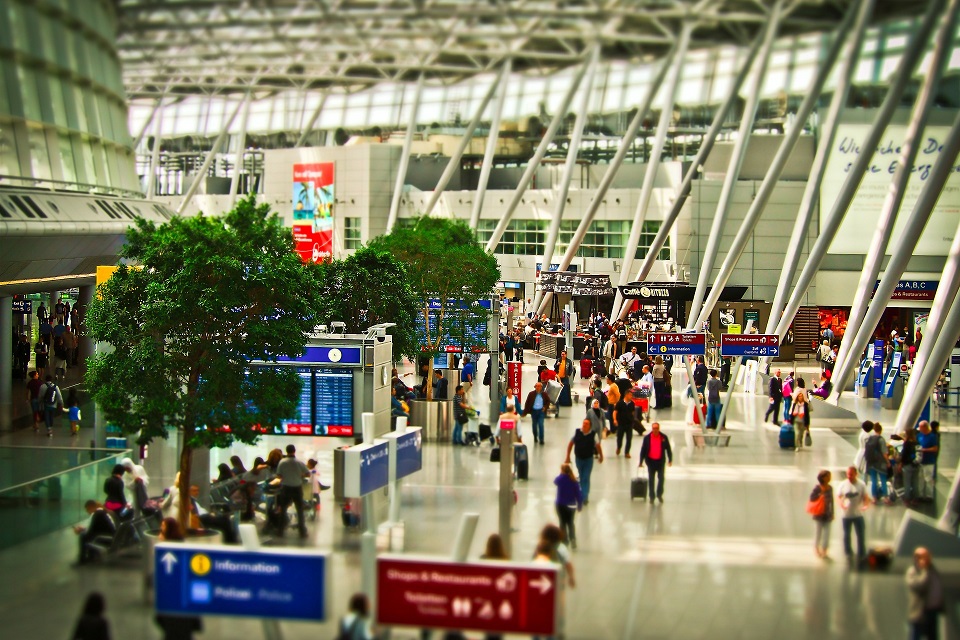Whenever you travel, it is of prime importance to ensure that your overall health is good. Otherwise, you will not be able to harness the true colors of life. For many people, traveling is a way to give themself a healthy break from the mundane life or workloads, and if that gets spoiled with gut issues or other health issues, what would it be to travel with health distress?
Our gut is responsible for digestion, immunity, and whatnot. An impaired gut means your body is off guard and incapable of absorbing nutrients which means a complete wreck.
So, what is the solution then for the faulty gut, and that too while traveling?
This guide will help you regain the ultimate gut health while you travel. Let’s get started with it.
Why Is Gut Health Important?
Gut health refers to a state where there is a delicate balance of microorganisms within our gut ecosystem. These friendly bacteria and yeast handle significant life processes such as digestion, immunity, skin, and mental health.
If your gut ecosystem gets out of balance, you will lose control over all the functions connected to these microorganisms.
Your body won’t digest or absorb food naturally with an impaired gut. Eating food is only valid if its nutrient is properly digested and absorbed within the system.

Similarly, the faulty gut also impairs the body’s natural defense system called immunity, making people susceptible to chronic diseases.
Now imagine yourself traveling with these multiple issues. It will be not only distressing but also physically exhausting. Isn’t it?
Besides this, the gut also controls the gut-brain axis, which controls mental well-being. Considering all the above considerations, it is clear why keeping a healthy gut is essential.
The best approach is to undergo regular checkups to be aware of your health before putting yourself in a state where you cannot have immediate medical assistance if you travel to mobile areas.
How To Improve Your Gut Health?
There are several ways to get a hold of your ultimate gut health. But the best one is those which need less effort, come naturally and have a long-lasting effect.
The following are the most effective ways to improve your gut health in case you have to travel a lot:
Eating high-fiber-content food
The fiber in your diet is necessary to nourish friendly bacteria within your gut. Fiber also produces short-chain fatty acids, which build the gut lining and health gut lining inflammation. Insoluble fiber helps to add roughage to your digested food which aids in constipation, one leading health ailment that is common among those who have to travel more since they have to be seated for a long time which limits their bowel movements. Soluble and insoluble fiber also treats diarrhea, abdominal pain, and bloating.
Getting plenty of water
Keeping yourself well hydrated assures you the ultimate health. Consuming enough water helps to maintain the mucous lining of the gut, which aids both in gut barrier intactness and smooth digestion. Water also increases the nutrient absorption within the blood. Keep yourself hydrated while traveling to ensure smooth stool passage and stool consistency.
Getting lean meats
Lean meats are those which have low fat content, and having them while traveling puts less stress on your digestive system while you travel. They are more easily digested as compared to high-fat content. Lean meat like chicken or fish also nourishes your system with essential nutrients needed by gut microbiota and other body organs.
Incorporate probiotics and prebiotic supplements.
Probiotic supplements are the essential gut health supplement needed to maintain a healthy gut balance. While on the other hand, prebiotic supplements feed the gut flora with crucial nutrients necessary for survival. If combined, both supplements aid the gut function and enhance its strength. Besides supplements, you can also get dietary sources of Probiotics (yogurt, kefir, and sauerkraut) and prebiotics (bananas, garlic, or asparagus). But you have supplements that make it convenient to carry while you are traveling.
Regular exercise
Keeping an active lifestyle greatly assists gut health. Exposure to regular low-intensity exercises maintains the average gut balance and facilitates bowel movements. Also, getting a standard exercise drill reduces the incidence of constipation or bloating.
Stress management
Stress has a significant effect when it comes to gut health. Therefore, avoiding stressful practices such as heavy workloads, lack of sleep, or overthinking is best to achieve optimum gut health.
Add polyphenol-rich food
Polyphenols are plant-based essential nutrients that are known for their gut-promising potential. The upper digestive system does not digest them and make their way to the colon, where they become food to the residing bacteria, thus replenishing their nutrient needs. You can get polyphenols from green tea supplements, berries, olives, and dark chocolate.
Avoid sugary and processed food.
Many processed foods contain excessive refined sugars, sodium, and unhealthy fats. Consuming an excessive amount of these can have very adverse effects on the microbiome of the gut as well as your overall health. They disturb the gut’s overall environment, making you crave more food without being aware.
Consuming an excessive amount of sugar can also cause inflammation in the gut, which can leave you feeling exhausted and bloated.
Things To Avoid While Traveling For Gut Health
While there are several things you have to do to ensure optimum health, there are plenty of others that need to be stopped before it causes a total disaster for gut health while you are traveling. It includes:
- Avoid excessive consumption of alcohol while traveling, as it will impair both your quality of driving plus your gut health. Too much alcohol promotes acid reflux causing acidity and stomach burns.
- Bloating, discomfort, and other digestive issues can result from overeating at once. Instead of binge eating, eat regular, balanced meals and snacks.
- Sleep affects gut health. Sleep deprivation harms gut microbiota and increases food sensitivity. Maintain regular sleep habits while traveling.
- Constipation and other gastrointestinal issues may result from dehydration, which can be brought on by not drinking enough water. Always keep a water bottle on you, and drink plenty of it.
Frequently Asked Questions
Why Do I Have Digestive Issues When I Travel?
We are often neglectful towards our health while we are traveling, which makes us prone to several gut health issues which could be due to:
- Lack of sleep
- Barometric pressure
- Stress
- Dehydration
- Dietary changes
How Do I Reset My Gut After Travel?
After traveling, eat a variety of fiber-rich, lean protein, and fermented foods, stay hydrated, exercise, and get enough sleep to reset your gut. You can also add a probiotic-rich diet and supplements to give your gut system a nice kick.
How Long Does It Take To Get Gut Health Back To Normal?
Gut health can be restored within 2–4 weeks of consistently adhering to healthy eating and living habits, though this time frame varies widely depending on the individual.


















